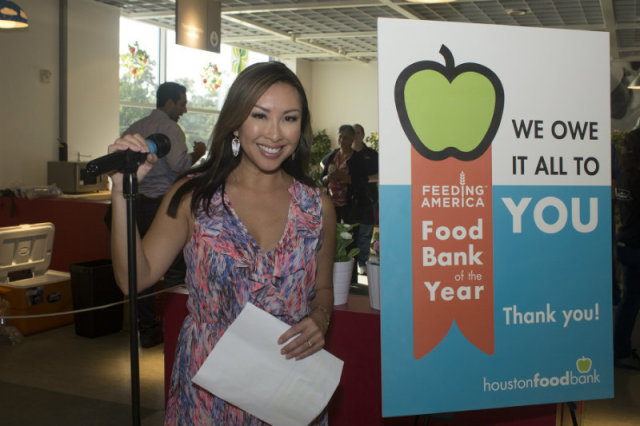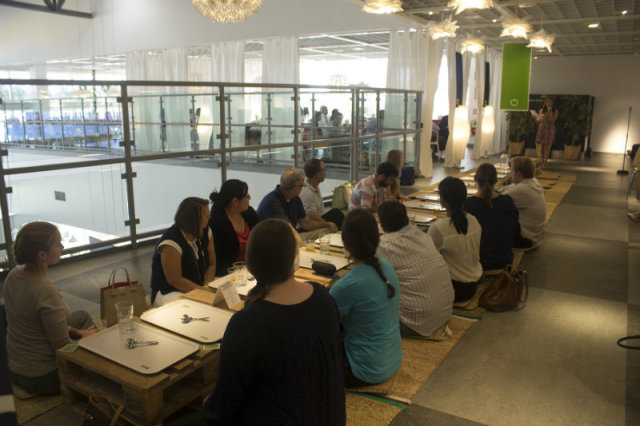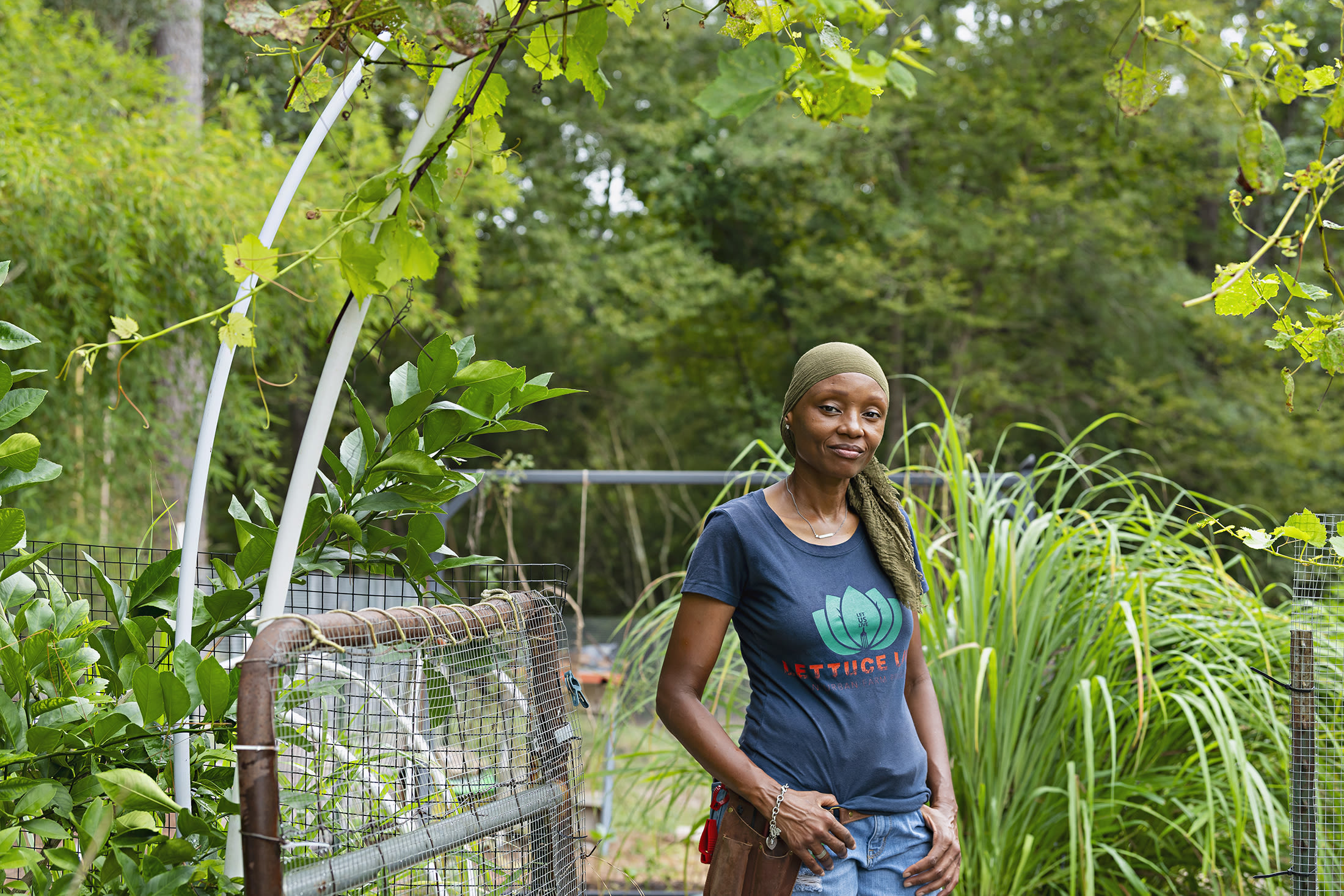Hungry to Help

Low, middle, and high income seating at f.r.e.s.h. and Houston Food Bank's Hunger Dinner.
Image: Paula Murphy
As soon as I walked into last week's Hunger Dinner at IKEA, organized by f.r.e.s.h. and the Houston Food Bank, I was struck by one thing right off the bat: the unusual seating assignments—which, I know, is not something you typically notice at these sorts of affairs. Over a hundred guests attended the dinner, and as they came in, each was randomly assigned to one of three income tiers and provided with a meal to match. That meant groups were seated at plain kitchen tables, in a restaurant-style curtained area and at wooden pallets on the floor, each representative of three broad economic tiers.

Emcee Lily Jang at Houston Food Bank's Hunger Dinner
Image: Paula Murphy
As emcee Lily Jang of KHOU read stories of real Houstonians in each income group, I was struck by all the things we don’t think about when we talk about hunger. As a well-educated 20-something, I like to think that I know how lucky I am—that I don’t have some of the misconceptions people have. I don’t think that everyone who goes to food banks is mooching off the system, or is homeless, or is just lazy. But I also don’t think about how someone could be just one or two paychecks or a health issue away from needing help, or how kids who get free lunch at school often go hungry in the summer, or about being forced to plan weekly meals on a non-flexible budget.
Matthew Heberlein from the f.r.e.s.h. young professionals program that helped organize the event explained that theirs is a relatively new program, one of the Houston Food Bank's new strategies to engage millennials. “We don’t fit the mold,” he said, explaining that a lot of donors are older habitual donors, and that it’s sometimes hard to understand how to interact with younger people to get them involved. The f.r.e.s.h. program aims to get younger people engaged to ensure there will be a legacy of people who will not only contribute to but will also help run the Houston Food Bank in the future. Heberlein's program helps plan and organize events specifically targeted towards younger age groups and raises awareness about food insecurity and upcoming events through social media and word-of-mouth.
Heather Icenogle, Director of Annual Giving and Events with the Houston Food Bank, was also excited about these new efforts to work with younger generations, telling me me that once millenials do get involved, “they tend to get more engaged. Older people will volunteer or donate, but not usually both.”
When I mentioned the theory that people who give back to the community are happier themselves, she wholeheartedly agreed. “People are surprised how affected they are when they volunteer. They often say that they get back more than they give, and we try to make sure that everyone who comes out understands the impact they’re having.”
Events and volunteer opportunities serve a double purpose. The Houston Food Bank can do a lot with the money raised or the time that’s put in, but they also educate people, giving them perspective and fighting stereotypes. People were visibly surprised by some of the statistics they heard—like the fact that 19 percent of families in Houston are low-income, and 9 percent of residents earn less than half of the poverty level.

Diners at the Houston Food Bank's Hunger Dinner
Image: Paula Murphy
Jake, another guest, said this had definitely changed his perspective, making him conscious of how lucky he was. Even though Jake wasn’t by any means currently in a high income-group himself, he came from a background that meant that he always had a fallback if things did go wrong for him. For many people, there is no fallback.
As I left him to grab some more dinner from the buffet that was provided after the example dinner –you know, in case people were still hungry after their own low-income meals—Matthew Heberlein left me with a last thought. “You never know who could be there,” Heberlein said. Despite the visible differences at the event, all different demographics suffer from food insecurity. “What’s more important, deciding who that is or satisfying the need?”
The Houston Food Bank, recently named food bank of the year by Feeding America, has events almost every month. Check out upcoming events, such as Houston Restaurant Weeks and Hunger Action Month, or volunteer.




